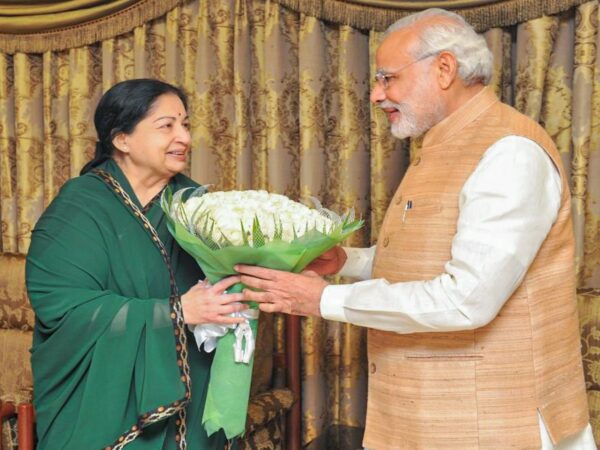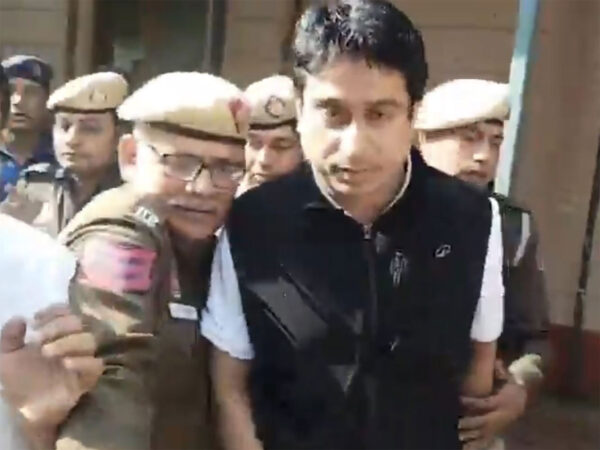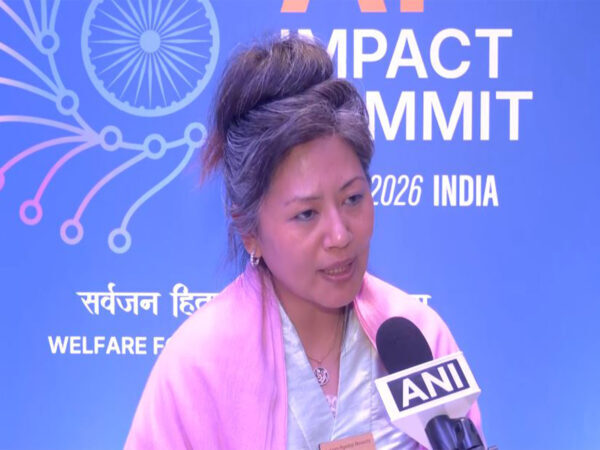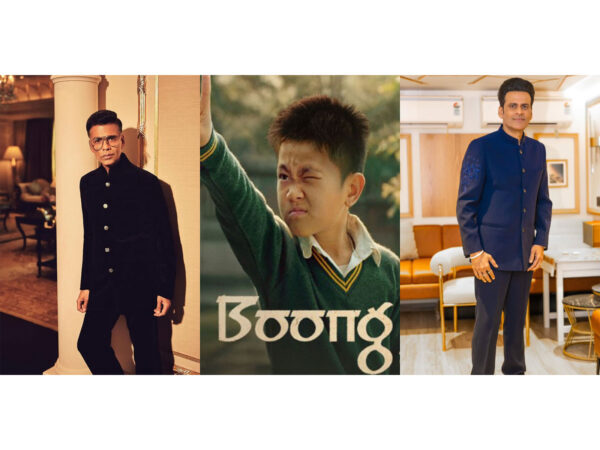
Ustad Amjad Ali Khan Remembers Shehnai Maestro Ustad Bismillah Khan
With music that transcends the boundaries of space and time, Ustad Amjad Ali Khan is a global icon. And warmth and nostalgia filled the air as he recalled the contribution of another genius who made the shehnai a household name in the country.
Looking debonair in his classy kurta and with a captivating smile, Ustad Amjad Ali Khan sat down for a conversation, remembering Ustad Bismillah Khan.
“I am very happy that we are celebrating the life of Ustad Bismillah Khan. I have beautiful memories of him. I had the honour of playing with him and spent a lot of time with him. He used to call my father uncle… So it was like a family affair,” Ustad Amjad Ali Khan told ANI.
Ustad Bismillah Khan, who was born as Qamaruddin Khan, transformed how the world looked at shehnai. He played a crucial role in popularising the shehnai and elevating its status in the realm of classical music. The legendary musician was instrumental in bringing the shehnai to the concert stage, which was traditionally associated with weddings and religious ceremonies. He was not only a musician but also a cultural ambassador of India.
Bismillah Khan was born on March 21, 1916 into a family of traditional Muslim musicians in Dumraon, a town near Buxar city, Bihar. With his passing away on August 21, 2006, a vacuum was created.
Remembering the music maestro, Ustad Amjad Ali Khan said his music was like poetry.
“So many times I attended his concerts. And he was also sometimes at my concert. His music was like a poetry. He dealt with poetry. In classical music, some musicians focus solely on grammar. And some musicians deal with literature. But very few musicians deal or come to that point of poetry. To Khan sahab ka jo music tha usme kavita thi, ras tha Banaras ke to the hi to usme ras bahut tha..He was very colourful. His music was very colourful.”
The leading sarod exponent was in the capital to recieve the prestigious Ustad Bismillah Khan ‘Silver Shehnai’ Award in the 18th annual edition of ‘Yaad-e-Bismillah’ — a tribute concert in memory of the shehnai maestro, organised by Padma Shri Soma Ghosh.
Ustad Amjad Ali Khan, who brings a new and timeless interpretation to the technique of playing the sarod, talked about the future of the instrument and the interest of the present generation in classical music.
“The future is very bright. There were more than 100 Sarod players earlier. And today we have about 500 Sarod players all over the world. So, the tradition of our culture, our classical music..jab tak chand suraj rahega, hamara sangeet kayam rahega..”
Born on October 9, 1945, into a family of musicians, the sarod virtuoso is the sixth generation in the legendary line of the Senia Bangash Gharana and has performed internationally since the 1960s.
His two sons, Amaan Ali Bangash and Ayaan Ali Bangash, like their father, are sarod players and represent the seventh generation of the musical lineage.
Talking about taking forward the legacy to his grandchildren, Zohaan and Abeer Ali Bangash, he said, “Though they are busy watching Ronaldo(Cristiano Ronaldo), football matches…listening to Michael Jackson and Justin Bieber and BTS. But when Abeer and Zohaan’s father, Ayaan, asks them to practice, they never say no.”
In 2011, Ustad Amjad Ali Khan performed on Carrie Newcomer’s album Everything is Everywhere. In 2014, along with his two sons, Ayaan Ali Khan and Amaan Ali Khan, he performed ‘Raga For Peace’.
The ace musician opened up about his interest in Western music, saying, “I have heard many symphony orchestras. I have also heard Elvis Presley, Michael Jackson.”
He recalled how he got a chance to meet Michael Jackson but could not do so. “There was a situation in 1984, I was travelling. I completed my two-month tour, and the children, Amaan and Ayaan, were very young. So I was missing the family. I could not accept his offer to perform. I admire Michael Jackson and Justin Bieber also. And BTS. I am very happy and very proud of young talent. And our legacy will always continue.”
Talking about the impact of AI on classical music, he said human touch is vital.
“I saw some; they tried to create Amjad Ali Khan. But it wasn’t like me. But a machine is a machine. And technique is technique. But the human touch. A keyboard can produce the sound of a sitar, the sound of every instrument except the sarod; however, human touch is very important.”
Ustad Amjad Ali Khan is recipient of many prestigious honours–the Padma Shri, Padma Bhushan, and Padma Vibhushan among them. Khan was made an honorary citizen of Houston, Texas, and Nashville, Tennessee, in 1997, and of Tulsa, Oklahoma, in 2007. (ANI)



